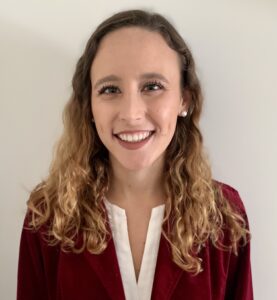Experts Address Pressing Questions Regarding Pharmacologic Obesity Treatment
“Stop seeing obesity as choice or a character flaw”
November 15, 2023
By Alex Morse
In a recent AAPA Huddle Ask Me session, two PA experts in obesity medicine answered questions on treating patients with insurance constraints, addressing weight-loss plateaus, educating patients on long-term medication use, and resources PAs can offer to manage nutrition.
Interested in discussing obesity medicine with your fellow PAs? Join our community on Huddle: Addressing Obesity: A Community of Practice. In this community, you can post questions and thoughts, hear from other PAs who are passionate about addressing the obesity crisis, and discuss current research and evidence-based approaches to obesity care.
Angela Thatcher, PA-C, is a board-certified PA and obesity medicine specialist. Elena Sullivan, MMSc, PA-C has been practicing obesity and lifestyle medicine in Boston, Massachusetts since graduating from the Yale PA Program in 2020.

Obesity Treatment Starts with Understanding
When treating patients with obesity, some healthcare providers tend to fall back on their biases and own experiences. When obesity is an area of medicine that is not well addressed during a provider’s medical education, patients may not receive the care or support they need. “Weight bias and stigma are pervasive in medicine and daily life, and patients may often experience internalized blame and shame,” Sullivan said. “Weight bias is often seen as a socially acceptable form of prejudice, similar to how mental health was historically treated.”
Thatcher agrees and believes that providers should be a trusted resource for patients and be up to date on guidelines and treatments. The Obesity Action Coalition is a great resource that aims to improve the health of patients with obesity through education, advocacy, awareness, and support. “If we can stop seeing obesity as choice or a character flaw, we can remove much of the shame and judgement that patients have previously felt after weight conversations in medical offices.”
Treating Patients with Obesity who have Insurance Constraints
For patients unable to access pharmacologic obesity treatment due to coverage or affordability, there are still a number of things PAs can do. Thatcher and Sullivan suggest the following:
- Complete a medical workup for any underlying conditions that may be contributing to weight gain (or difficulty with weight loss) such as thyroid disorders, insulin resistance, depression, obstructive sleep apnea (OSA), etc. Treatment of some of these underlying conditions may help to decrease weight or may be indications for medications that can also help with weight reduction.
- Screen for medications that may be contributing to weight gain such as corticosteroids, certain antidepressants, anticonvulsants, and beta blockers.
- Assess the quality, duration, and timing of sleep patterns. Use STOP-BANG score to assess risk for OSA and refer for a sleep study if needed.
- Take a census of daily/weekly minutes of movement. Each patient’s goal should be individualized, but PAs can meet the patient where they are and work to increase physical activity to the recommended 150 minutes of moderate intensity aerobic activity with strength training 2-3 times per week for 10-20 minutes per session.
- Discuss stress management and the importance of engaging in activities to de-stress: e.g., puzzles, artwork, music, meditation, dancing, walking, or social support groups.
- Prescribe a more affordable medication option, such as:
- Qsymia and Contrave – branded oral medications that are more accessible even without insurance.
- Generic options, such as phentermine, topiramate, bupropion, and naltrexone can all be prescribed separately or in the combination to mirror the dosing of brand name medications such as Qsymia or Contrave that patients otherwise can’t get covered or afford.
- Metformin can also be a helpful part of a patient’s treatment plan if insulin resistance is present.

Using Medications Long-Term and Addressing Weight-Loss Plateaus
Thatcher emphasizes the importance of providing education to patients up front that obesity is a chronic disease, and medications are designed and approved for long-term use. When discussing options with patients, it is important to compare the potential risk of the medication with the potential risk of untreated obesity.
If a patient has been off medication for a long period of time, it might be best to ease them back onto their previous dosage. From Sullivan’s own experiences, every one of her patients has been a case-by-case basis and dependent on the patient and their prior experiences with semaglutide. She also recommends not discontinuing these medications once weight loss has been achieved. “Trial data has demonstrated that patients can gain approximately 2/3 of their weight back within a year after stopping the medication.”
Another frustrating aspect of a weight loss journey is the inevitable plateau. It’s important to reassure patients that plateaus are a normal aspect of weight loss, and they should not be discouraged when it happens to them. Thatcher suggests tracking food intake, even if only for a short period of time, to make patients more aware of food choices. She also encourages them to increase their movement throughout the day and add resistance training to their exercise routines.
Sullivan points out that weight loss is often a stepwise process rather than a linear one. “As Angela mentioned, weight plateaus are expected and eventually everyone will reach one.”
Free Resources to Help Patients Manage Nutrition
No matter whether a patient uses pharmacologic treatment when starting their weight-loss journey or not, they need the proper tools to help them succeed long term. When suggesting nutrition changes, Sullivan recommends framing the conversation around what can be added to the patient’s diet to increase nutrient content, rather than eliminating foods. “Medications may be just one part of the treatment plan, but we can empower our patients with the knowledge and skills to improve their health in conjunction with lifestyle practices as well.” Thatcher agrees and experiences the most success when teaching patients practical and realistic ways to optimize nutrition.
Below is a list of recommended nutrition resources:
- AAPA’s Nutrition Toolkit offers CME, programs and events, and other tools and resources to equip PAs with knowledge and skills to promote optimal health in their practices.
- The Dallas Obesity Society has developed several patient handouts on nutrition in their Obesity Toolkit, that are available to download.
- A dietary recall or food log can help patients identify dietary patterns or habits. This is also an opportunity to add nutrient dense foods like fruits, vegetables, whole grains, legumes, lean proteins, nuts, and seeds to the patient’s diet.
- The CDC has a page dedicated to Healthy Weight, Nutrition, and Physical Activity that offers recommendations and tips for healthy eating.
- Yum Project: Meal-O-Matic is a great site for patients to use to make healthy recipes with ingredients that they already have at home.
- The Gaples Institute offers free interactive programs in both English and Spanish for clinicians and patients who are interested in learning more about nutrition.
Finally, Sullivan emphasizes that weight and health are not synonymous. “We have to individualize expectations to bridge the gap between societal standards around weight in cases where overall metabolic and functional health has significantly improved and is being well-maintained.”
About the Experts
Thatcher has practiced in her home state of North Carolina since graduating from East Carolina University in 2016. She holds the Certificate of Advanced Education in Obesity Medicine through the Obesity Medicine Association. A dedicated patient advocate with a background in social work, Thatcher is passionate about providing evidence-based, individualized care for patients who want to improve their health through weight loss. This is the focus of the clinic that she opened in 2022.
Sullivan was a 2022 Nutrition Outreach Fellow and has given multiple lectures on nutrition, diabetes management, and healthy aging for PA programs, college campuses, and urban community organizations. She is passionate about preventative medicine, health education, and forming long-term alliances. Sullivan believes in integrating mindfulness practices into her clinical care to help patients identify and resolve the root causes of weight gain in a sustainable manner.
Read the full Ask Me session online and be sure to check out AAPA’s Obesity Toolkit.
Alex Morse is AAPA’s Communications Associate. She can be reached at [email protected].
You May Also Like
Creating a Safe Space to Discuss Obesity with Patients, Experts Speak
Obesity Medicine PA Karli Burridge Finds Success with a New Approach
Bilingual PA Ledyenska Ballesteros Has Built an Obesity Medicine Program to Serve Her Primarily Hispanic Patient Population
2022–2023 Obesity Management in Primary Care Training and Certificate Program
Thank you for reading AAPA’s News Central
You have 2 articles left this month. Create a free account to read more stories, or become a member for more access to exclusive benefits! Already have an account? Log in.



